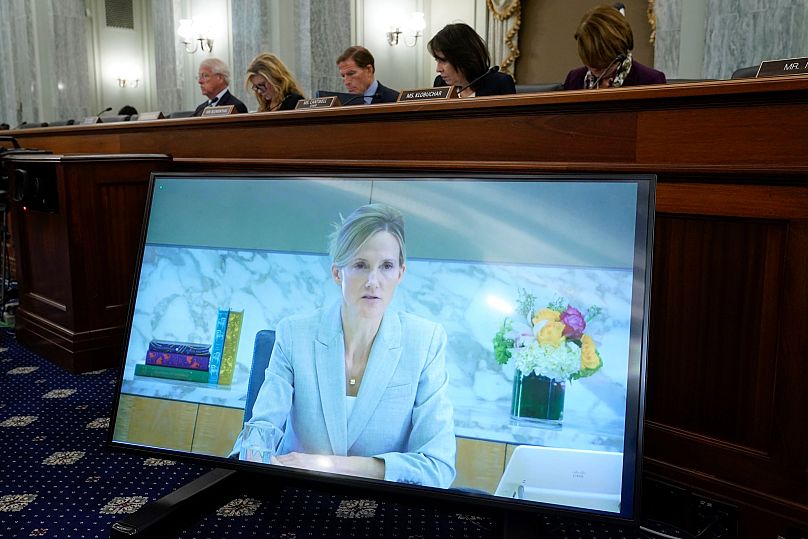Two European lawmakers said the leaked documents proved big tech companies could not be trusted to regulate themselves.
Two members of the European parliament have called for an investigation into allegations by a whistleblower that Facebook prioritised profits above the public good.
Whistleblower Frances Haugen, who left Facebook in May this year, leaked internal company research - including reports that reveal Instagram's impact on teenage girls' mental health - to the Wall Street Journal last month.
In a statement released on Monday, the EU parliamentarians said they had been in contact with Haugen, who is due to appear before a US Senate committee on Tuesday.
"The Facebook Files – and the revelations that the whistleblower has presented to us – underscores just how important it is that we do not let the large tech companies regulate themselves. They are simply not capable of lifting that responsibility," said Danish Social Democrat MEP Christel Schaldemose.
Regulating Big Tech
Schaldemose is the lead rapporteur for the Digital Services Act, announced by the European Commission in December last year, that could see tech companies handed fines if they don't act to stop users' unlawful behaviour.
The DSA would also oblige online platforms - like Facebook - to be more transparent about the algorithms they use and to "prevent abuse of their systems" by allowing independent audits.
"The documents finally put all the facts on the table to allow us to adopt a stronger Digital Services Act," Alexandra Geese, a German Green MEP involved in negotiations over the content of the Act, said.
"We need to regulate the whole system and the business model that favours disinformation and violence over factual content – and enables its rapid dissemination," she said.
Under pressure
Responding to the calls for social media regulation, a Facebook spokesperson said, "every day, we make difficult decisions on where to draw lines between free expression and harmful speech, privacy, security, and other issues".
"But we should not be making these decisions on our own... we've been advocating for updated regulations where democratic governments set industry standards to which we can all adhere".
Facebook's head of global safety, Antigone Davis was grilled by American lawmakers last week, after documents leaked by Haugen prompted concerns over child safety on Instagram.
"We take the issue very seriously...We have put in place multiple protections to create safe and age-appropriate experiences for people between the ages of 13 and 17," she said.
However, US senator Richard Blumenthal said the leaked research showed that Facebook prioritised profits over protecting children from harm.
"I don’t understand how you can deny that Instagram is exploiting young users for its own profit," he told Davis.
"We now know that Facebook routinely puts profits ahead of kids' online safety. We know it chooses the growth of its products over the well-being of our children. And we now know that it is indefensibly delinquent in acting to protect them," Blumenthal said.
EU considers scope of rules
European Union regulators have been considering whether all online platforms, or only larger ones or those at particular risk of exposure to illegal activities by their users, should be subjected to take-down notices, and how prescriptive these should be.
"Our position is clear: the power of major platforms over public debate and social life must be subject to democratically validated rules, in particular on transparency and accountability," an European Commission spokesperson said when asked about the allegations against Facebook.
Tech companies have said it was unfair and not technically feasible for them to police the internet. The current EU e-commerce directive says intermediary service providers play a technical, automatic and passive role.












